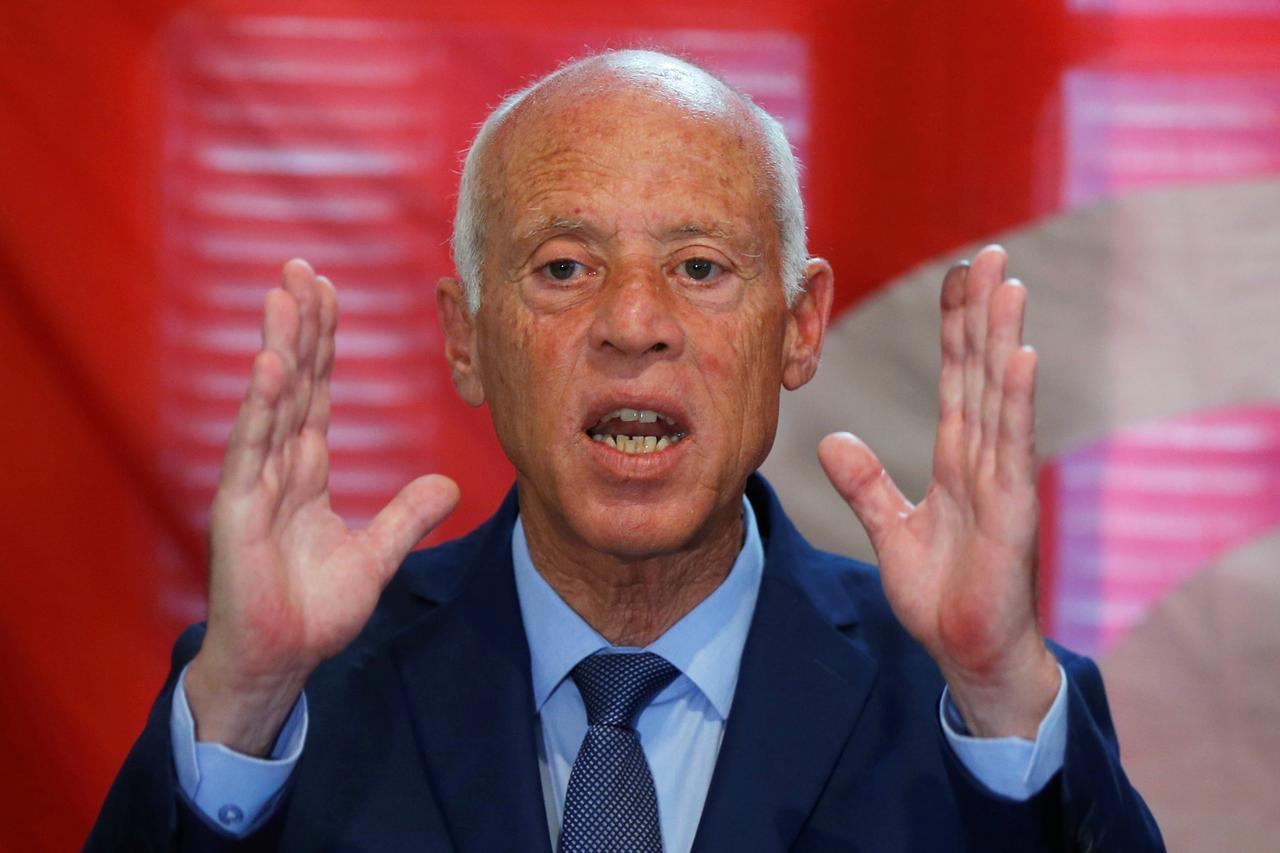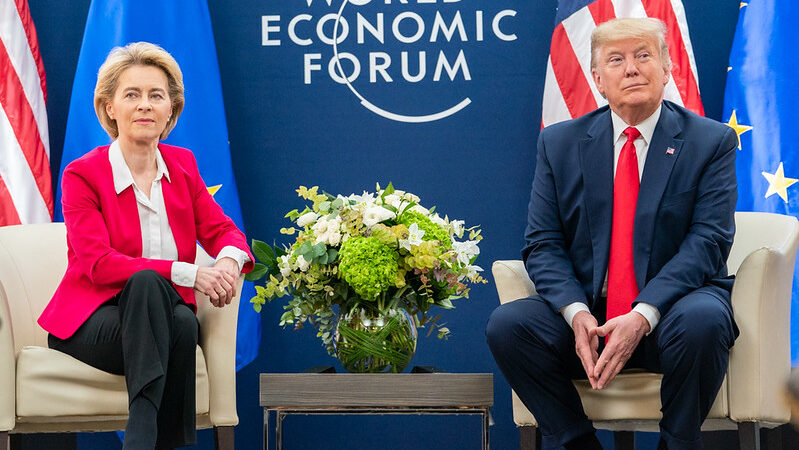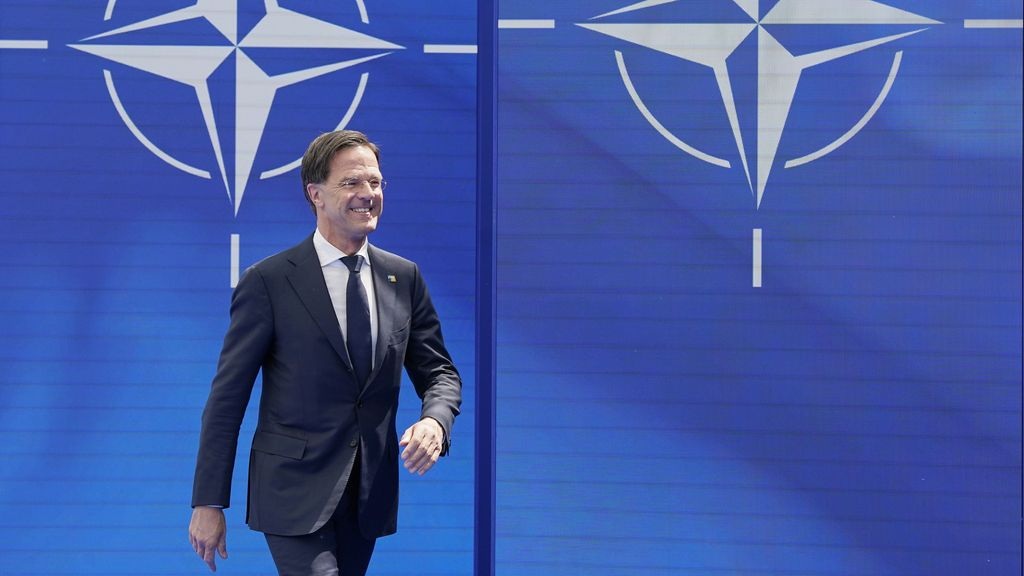
Qaïs Saied has consolidated his hold on Tunisia, but economic woes mean his control remains unstable.
Hamza Meddeb is a fellow at the Malcolm H. Kerr Carnegie Middle East Center in Beirut, where he focuses on political economy and security across the Middle East and North Africa. Meddeb is also in charge, with Nur Arafeh, of a new program on political economy at MHKCMEC. Diwan interviewed him in late September to get an update from him on the economic situation in Tunisia, where President Qaïs Saied has continued to consolidate his authority, while being unable to greatly ameliorate the country’s ailing economy.
Michael Young: How stable is the new political order that President Qaïs Saied has installed in Tunisia?
Hamza Meddeb: Despite the adoption of a new constitution on July 25 of this year, establishing a hyper-presidential system, the new political order is far from being stable. Since his power grab in July 2021, President Qaïs Saied has succeeded in achieving three goals. He has concentrated power by extending the prerogatives of the executive, and particularly those of the president, at the expense of parliament and the judiciary. He has weakened the powerful Union Generale Tunisienne du Travail (UGTT), the main labor union and a prominent social actor, which used to have considerably more influence over political dynamics in the country. And he has marginalized the Islamist Ennahda Party, the country’s largest, which played a key role in Tunisia’s transition for over a decade. However, he has also failed to address economic challenges and offer an economic vision for the country. Nor has he presented a way out of the deep economic and fiscal crisis that has been exacerbated by the surge in energy and food prices because of the war in Ukraine. More than a year after Saied’s power grab, Tunisia’s economic situation has been deteriorating, there have been food shortages, and all this has exacerbated public frustration and anger.
In adopting an anti-party stance, Saied has also antagonized the political elites. Leading political parties have already announced that, because of Saied’s unilateral drafting of an election law, they would boycott the parliamentary elections scheduled for the end of this year. The parties and elites argue that the individual based voting system will favor wealthy candidates and exacerbate tribal and regional tensions in the country. The absence of gender parity will also harm women’s parliamentary representation.
MY: How does illegal migration factor into Saied’s plans? In other words, what does it tell us about the country’s governing class and its relations with Europe?
HM: Illegal migration from Tunisia has accelerated in 2022. The number of Tunisians who arrived in Italy by mid-September amounts to around 13,500 people. The figure is certainly larger if we take into consideration the thousands who reached western Europe through the alternative Balkans route. This represents the most significant migration wave since 2011, when around 25,000 Tunisians left the country in the weeks following the fall of president Zine al-Abedin bin Ali. It reflects the deterioration of Tunisia’s economic situation, but also the loss of hope among many Tunisians that things will improve in the foreseeable future.
This wave, which began in 2021 and accelerated in 2022, has been a source of concern for the Italian authorities. Italy’s interior and foreign ministers have visited Tunisia several times and met with Saied to insist on the need to strengthen cooperation in the fight against illegal migration. Saied accepted a tacit agreement to accelerate the process of readmission of illegal migrants, and hundreds were sent back to Tunisia from France and Italy. None of the post-2011 governments did this, which shows the extent to which Saied has been weakened because of his isolation. Criticism from the international community against his takeover of power has eroded his position, depriving him of a margin for maneuver to negotiate with his European counterparts on migration issues.
MY: How will the agreement signed between the government and the UGTT on September 15 over the public-sector wage bill help the negotiations with the International Monetary Fund (IMF)?
HM: The agreement is a step toward securing an IMF staff-level agreement on a new multiyear program. It has a positive side in terms of providing predictability for the evolution of the public-sector wage bill. The 3.5 percent annual wage increase that applies to the period 2023–2025 is not retroactive and is well below the inflation rate. The UGTT has committed not to seek further wage revisions during the period of the agreement with the government. However, there will be risks in implementing it. The decline in living standards because of the increase in inflation will feed contestation among the UGTT’s members, creating serious problems for the labor union’s leadership. The reform of subsidies, a key pillar of any future agreement with the IMF, will likely hurt the purchasing power of the state-dependent middle classes, the UGTT’s core base. This could weaken the UGTT’s leadership and increase divisions within the organization. Given the boycott of elections by political parties, the next parliament may be unable to act as a forum to channel economic demands and host policy debates. This could pave the way for street politics that destabilize the current political system.
MY: Where do you see the Tunisian economy one year from now?
HM: Tunisia’s economic prospects remain uncertain. The post-pandemic recovery has been slow and the shocks in energy and food prices generated by the Ukraine war are aggravating the economy’s vulnerabilities. Debt sustainability concerns remain acute because of high fiscal deficits and considerable financial needs. Negotiations with the IMF for a much-needed program to secure macroeconomic stability are progressing with difficulty, and any agreement, if there is one, won’t be concluded until 2023. The coming months will be difficult and uncertain.
The paradox with Saied is that, despite the deep changes he has made to the political system, he has been unable to unblock Tunisia’s economic morass. The president has failed to neutralize well entrenched interest groups and rent seeking businesses that have vetoed reform policies over the past decade. He has failed so far to implement structural reforms and offer a long-term economic perspective to Tunisians. This incapacity to engage in bold reforms has prevented the consolidation of democracy, and the inability to address the economic crisis might prove to be costly for Saied and the consolidation of his regime.




